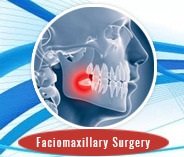Everyone needs to have dental care. However, people suffering from severe medical problems may need extra precautions or care. Dentists are able to take account of all these things when providing dental care.
What does the dentist need to know?
The dentist will need to know the patient’s medical history and about any medicines they are taking. This includes any inhalers and regularly prescribed medicines from the doctor. The dentist will also need to know the name of the family doctor, hospital consultant, and about any recent operations and allergies the patient may have.
It is also helpful if the dental team know about any concerns or anxieties the patient has, so that they can help to make the patient feel at ease. This information can be given by the patient’s parents or caretakers. However, some patients do prefer to communicate directly with the dentist. Dentists are prepared for working in these circumstances.
Dentistry for People with:
Diabetes: Diabetes can cause serious problems in your mouth. You can do something about it. If you have diabetes, make sure you take care of your mouth. People with diabetes are at risk for mouth infections, especially periodontal (gum) disease. Periodontal disease can damage the gum and bone that hold your teeth in place and may lead to painful chewing problems. Some people with serious gum disease lose their teeth. Periodontal disease may also make it hard to control your blood glucose (blood sugar).
Other problems diabetes can cause are dry mouth and a fungal infection called oral thrush. Dry mouth happens when you do not have enough saliva//?the fluid that keeps your mouth wet. Diabetes may also cause the glucose level in your saliva to increase. Together, these problems may lead to oral thrush, which causes painful white patches in your mouth. You can keep your teeth and gums healthy. By controlling your blood glucose, brushing and flossing every day, and visiting a dentist regularly, you can help prevent periodontal disease. If your diabetes is not under control, you are more likely to develop problems in your mouth.
Heart Disease: Wait a minimum of six months after a heart attack before undergoing any dental treatments. Tell your dentist if you are taking anticoagulants (blood-thinning drugs). These medications could result in excessive bleeding during some oral surgery procedures. Ask your dentist if oxygen and nitro-glycerine are available in case a medical emergency should arise during your office visit.
High Blood Pressure (Hypertension): Some high blood pressure drugs can cause dry mouth or alter your sense of taste. Calcium channel blockers in particular can cause the gum tissue to swell and overgrow, resulting in chewing difficulties. If you do experience gum overgrowth, your dentist will give you detailed oral hygiene instructions and may ask you to make more frequent dental visits for cleanings. In some cases, gum surgery may be required. (A gingivectomy is the name of the surgical procedure performed to remove excess gum tissue).
If your dental procedure requires the use of anaesthesia, ask your dentist if the anaesthesia contains epinephrine. Epinephrine is a common additive in local anaesthesia products. Use of epinephrine in some patients with high blood pressure may result in cardiovascular changes – including the rapid development of dangerously high blood pressure, angina, heart attack, and arrhythmias – and therefore should be used with caution.
Stroke: If you’ve had a stroke in the past, tell your dentist if you are taking anticoagulants (blood-thinning drugs). These medications could result in excessive bleeding during some oral surgery procedures. If your stroke has impaired your ability to produce an adequate amount of saliva, your dentist may recommend the use of artificial saliva. If your stroke has affected your face, tongue, or dominant hand and arm, your dentist may also recommend use of fluoride gels, modified brushing or flossing techniques, and strategies others can use to assist you in maintaining good oral hygiene.
Renal Failure: Bone loss in the jaw can occur in those with kidney disease. Calcium imbalance contributes to loss of calcium from the bones resulting in weak bones. Weak bones can cause teeth to become loose and potentially fall out. The best way to help prevent bone loss is to make sure calcium and phosphorus levels stay within the goal range.
Kidney patients are advised to tell their kidney doctor when a dental procedure is required. The doctor may recommend antibiotics be taken prior to the procedure to help guard against infection. The dentist should be made aware that their patient has kidney disease or is on dialysis. The dentist will take this into consideration during treatment and if prescribing medicines. Ideally, dental procedures, such as tooth extraction, should occur on a non-dialysis day for those on haemodialysis. Heparin, administered during haemodialysis, may cause some people to have extra bleeding.















